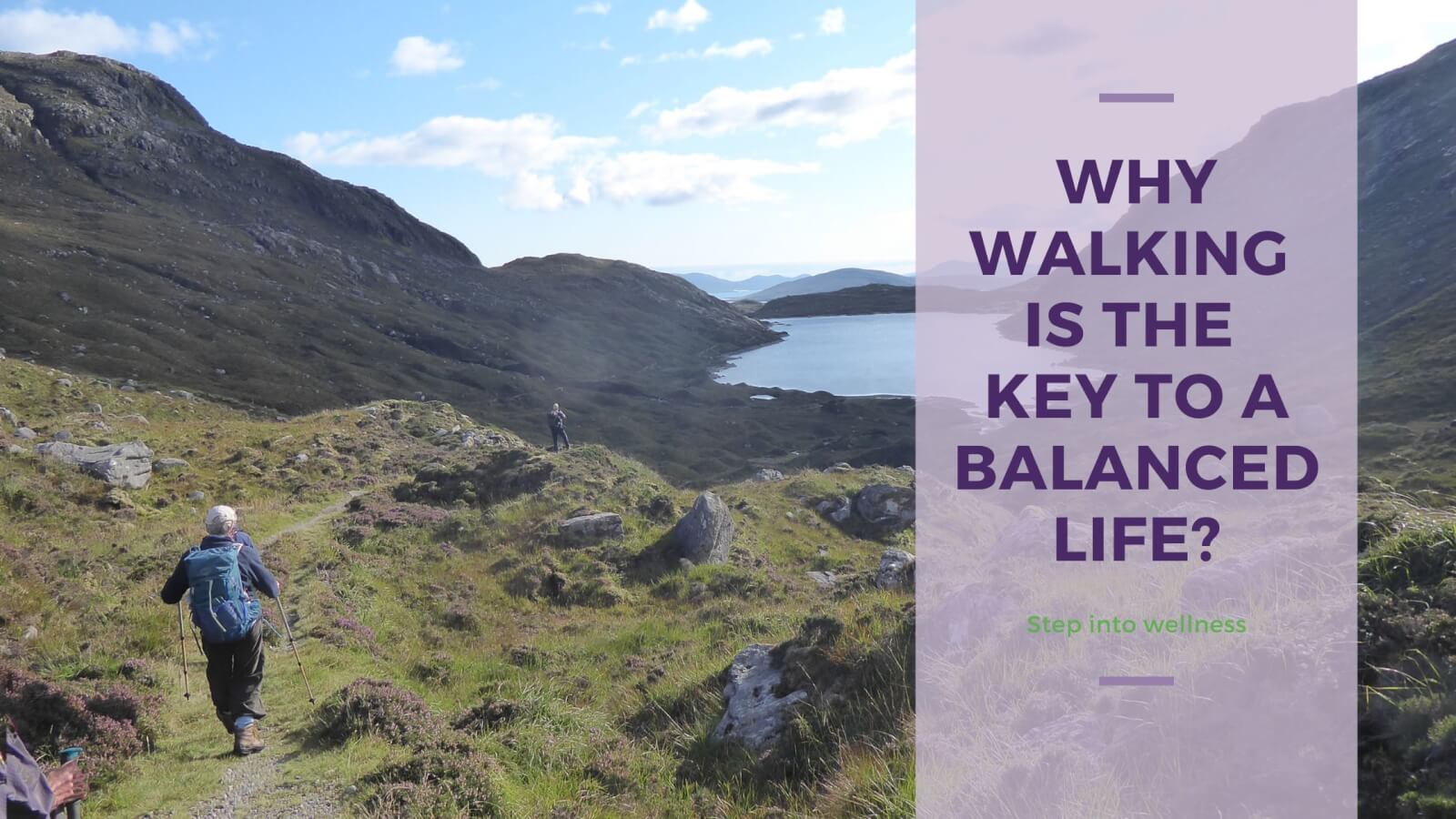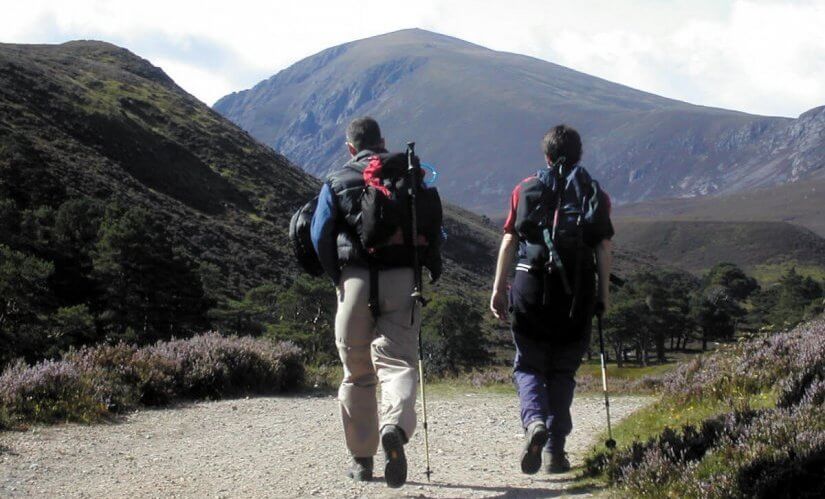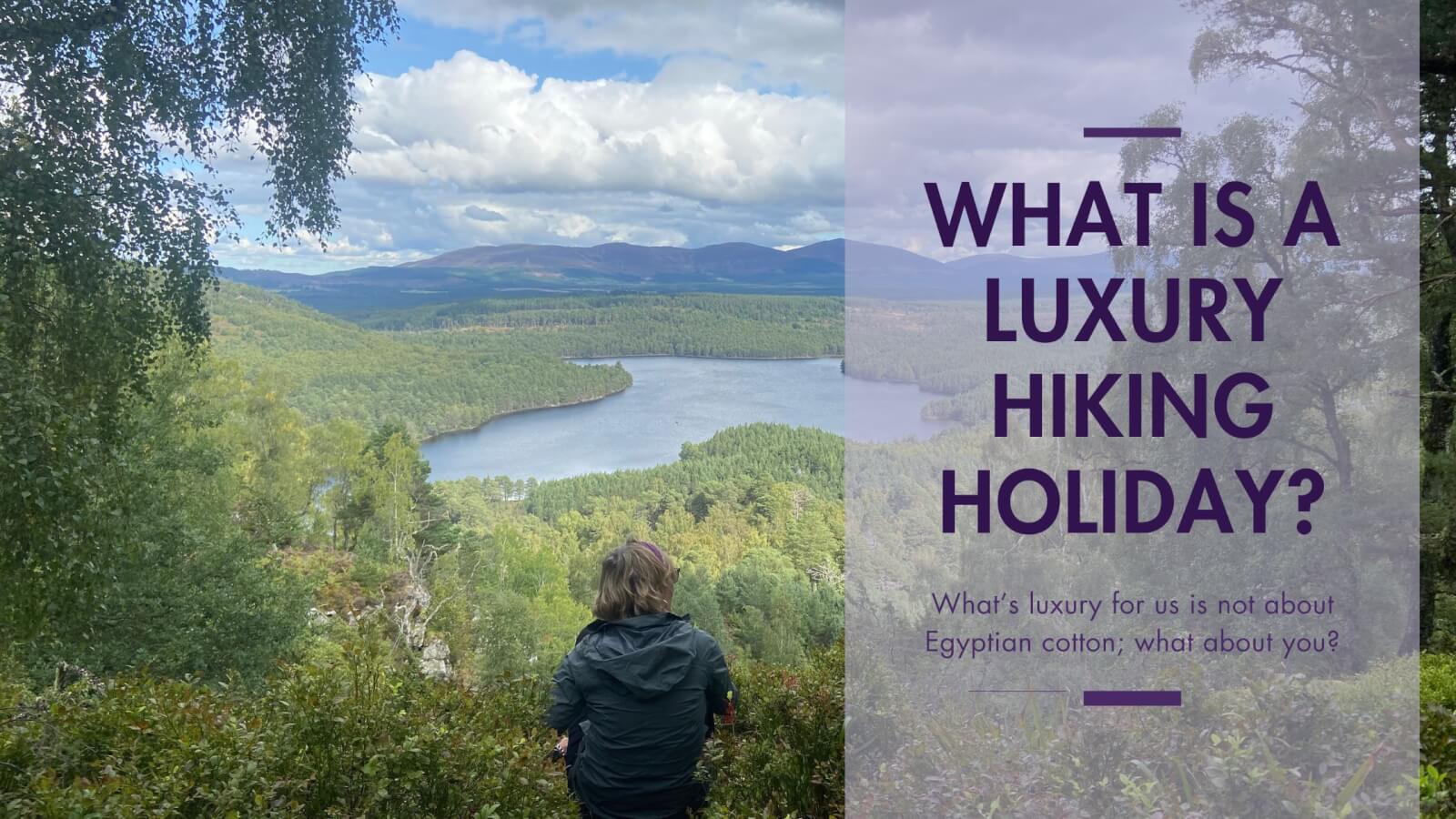The Modern Struggle: Searching for Balance
In today’s fast-paced world, we are constantly bombarded by negativity, confined within office walls, and often motivated by little more than financial gain. At the same time, we watch others experience more, travel more, and seemingly live more. Despite saying “I’m fine,” many of us feel that something is missing. So, how do we restore balance and wellness in our lives?
Looking Back: What Our Ancestors Knew About Well-Being
Our early ancestors lived much simpler lives, focused on survival—finding food, managing the weather, and protecting their territories. Despite their challenges, they thrived by working alongside nature. Today, though we still innovate and create, our setting has drastically changed. The natural world that once sustained us is now hidden behind high-rise buildings, leaving many disconnected from the great outdoors.
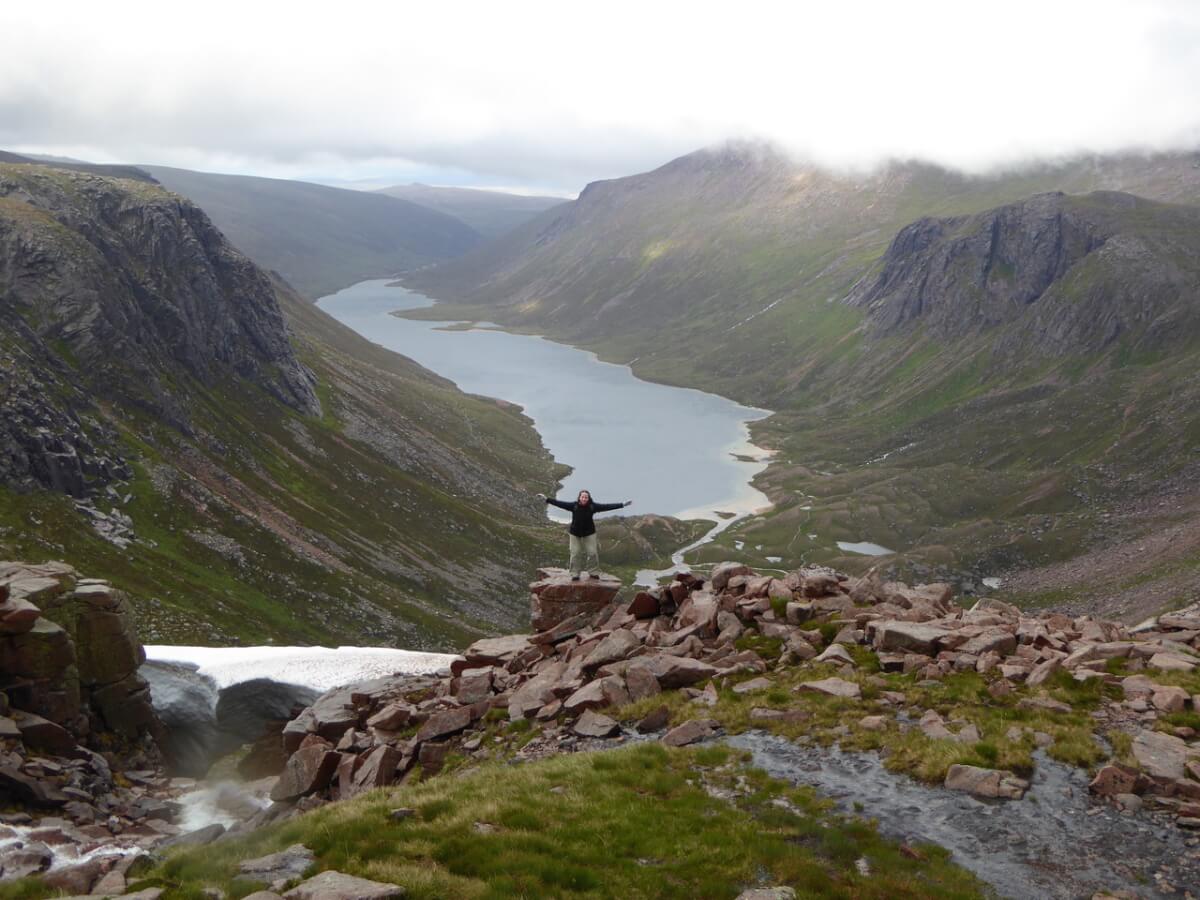
Posing amid the grandeur of the Cairngorms scenery
The Rise of ‘Wild Therapy’
A psychologist friend of mine often speaks about “wild therapy,” a practice that encourages people to step outside their usual indoor routines and engage with nature. Our ancestors’ daily lives required them to move, explore, and adapt. Today, we must make a conscious effort to do the same. Even a simple walk can make a world of difference.
Why Walking is Good for You
1. Walking Holidays Keep You Healthy—Physically & Mentally
“Walking holidays are a great way to discover new areas of the UK countryside,” says Matt Fox, CEO of Snaptrip.com. “It’s also a brilliant way to remove yourself from the stress of daily life and come home feeling rejuvenated.” Walking is one of the easiest and most effective ways to maintain both physical and mental well-being.
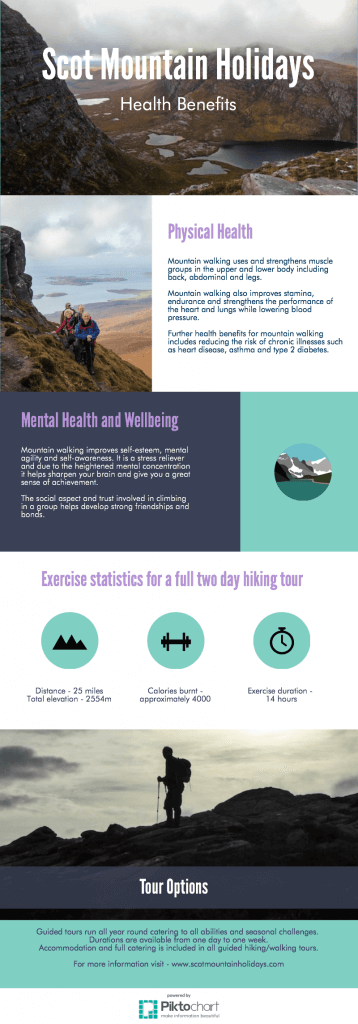
2. Improve Your Mood & Reduce Stress
Walking in nature releases dopamine and serotonin—chemicals in the brain responsible for happiness and well-being. These neurotransmitters help reduce stress, anxiety, and even depression.
3. Combat Loneliness & Build Social Connections
Humans evolved in tribal communities, and we have an innate need to connect with others. Walking introduces opportunities to meet new people, share experiences, and engage in positive interactions that boost mental health.
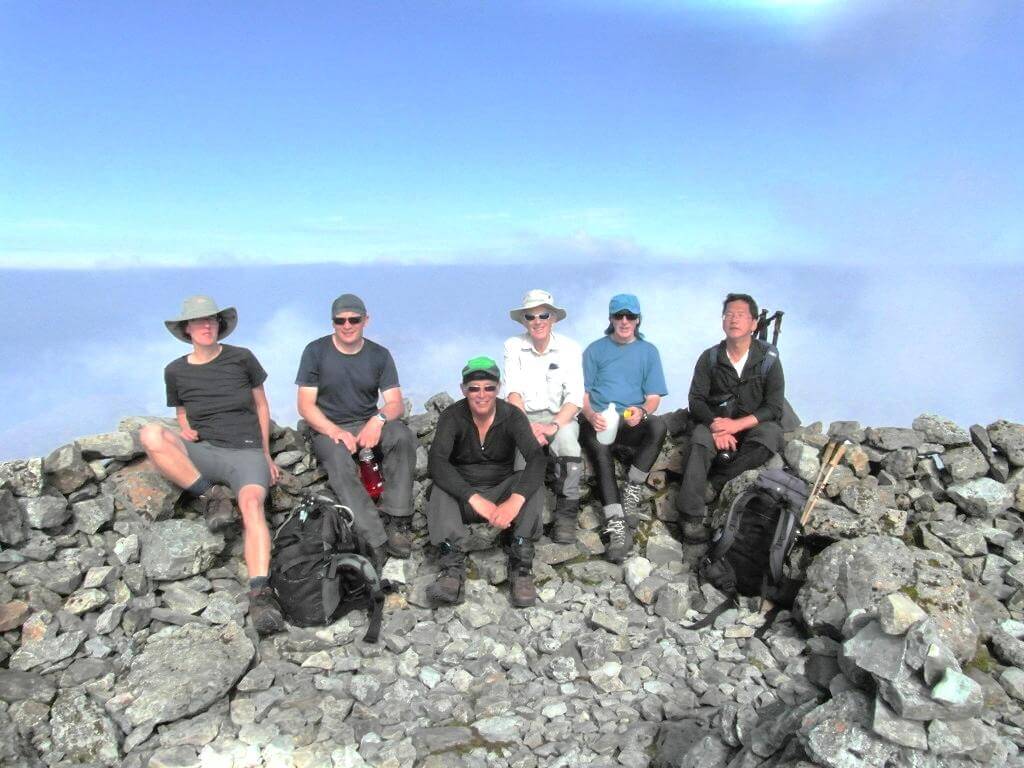
4. Boost Cognitive Function & Creativity
Research suggests that being in natural environments—whether green (land-based) or blue (water-based)—enhances cognitive function, memory, and creativity. It’s no surprise that spending time outdoors can lead to clearer thinking and fresh perspectives.
5. Increase Your Energy & Fitness
It may be tough at first, especially when tackling uphill climbs (I know this firsthand!), but persistence pays off. Regular walking improves endurance, strengthens muscles, and increases overall energy levels.
6. Achieve a Sense of Accomplishment
Sometimes, getting out of bed is an achievement in itself. But when you challenge yourself—whether it’s bagging a Munro or simply completing a scenic walk—you’ll feel a deep sense of satisfaction. That summit selfie is more than just a picture; it’s a reminder of your resilience.
7. Reconnect with Nature & Breathe Fresh Air
Life moves fast, and it’s easy to get caught up in the rush. Taking time to step outside, breathe in the fresh air, and appreciate the natural world can be a simple yet powerful act of self-care.
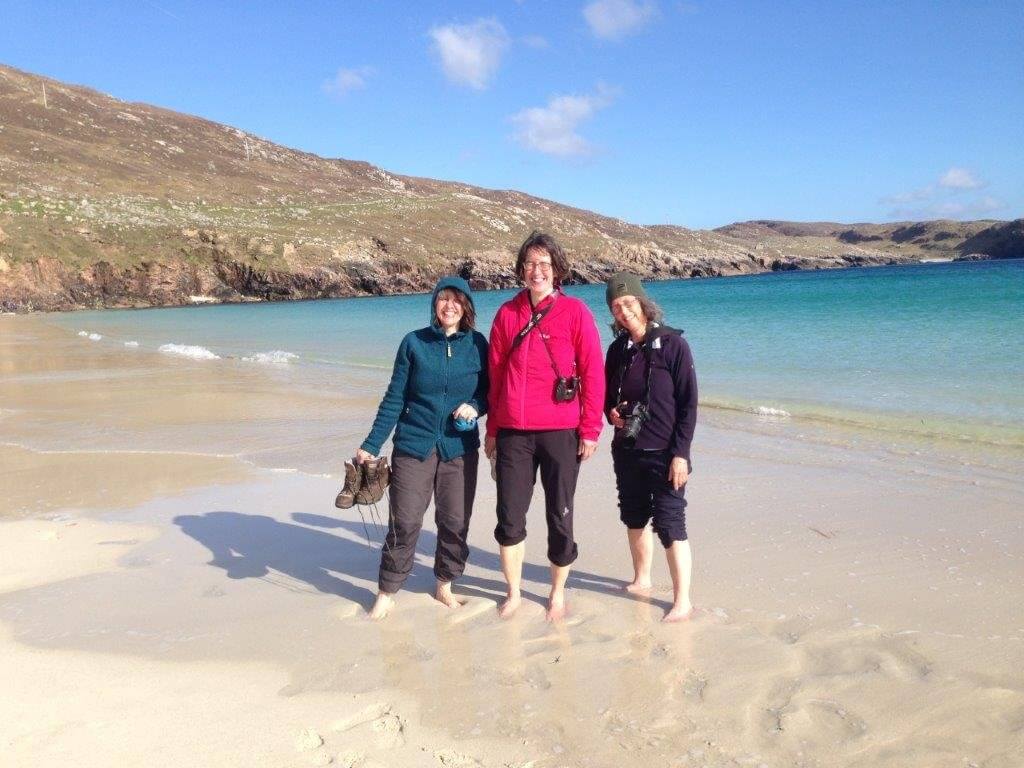
Paddling on the beach at Harris
8. Sleep Better & Experience No Negative Side Effects
Unlike many modern remedies for stress and fatigue, walking has no downside. It promotes better sleep, improves overall health, and is entirely free.
Take the First Step
You don’t have to embark on an extreme expedition to reap the benefits of walking. Start small—choose a nearby trail, explore a new part of town, or plan a short walking holiday. If you need inspiration, we at Fraoch Lodge would love to help you begin your journey.
Resources
Map Travels list of 10 reasons to go on a walking holiday
https://www.forallourwellbeing.co.uk/wellbeing/walking/benefits-of-walking
Call to the wild: This is your brain on nature


